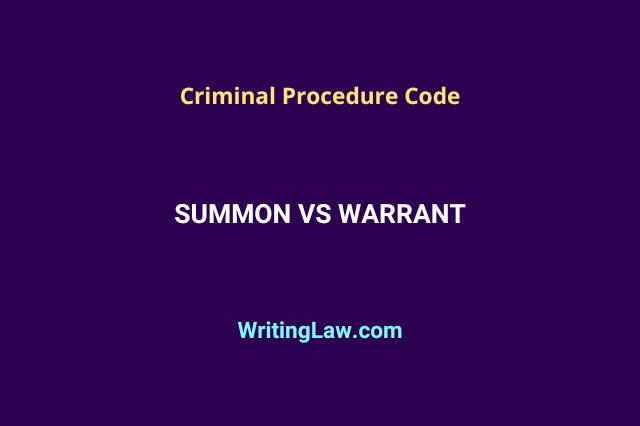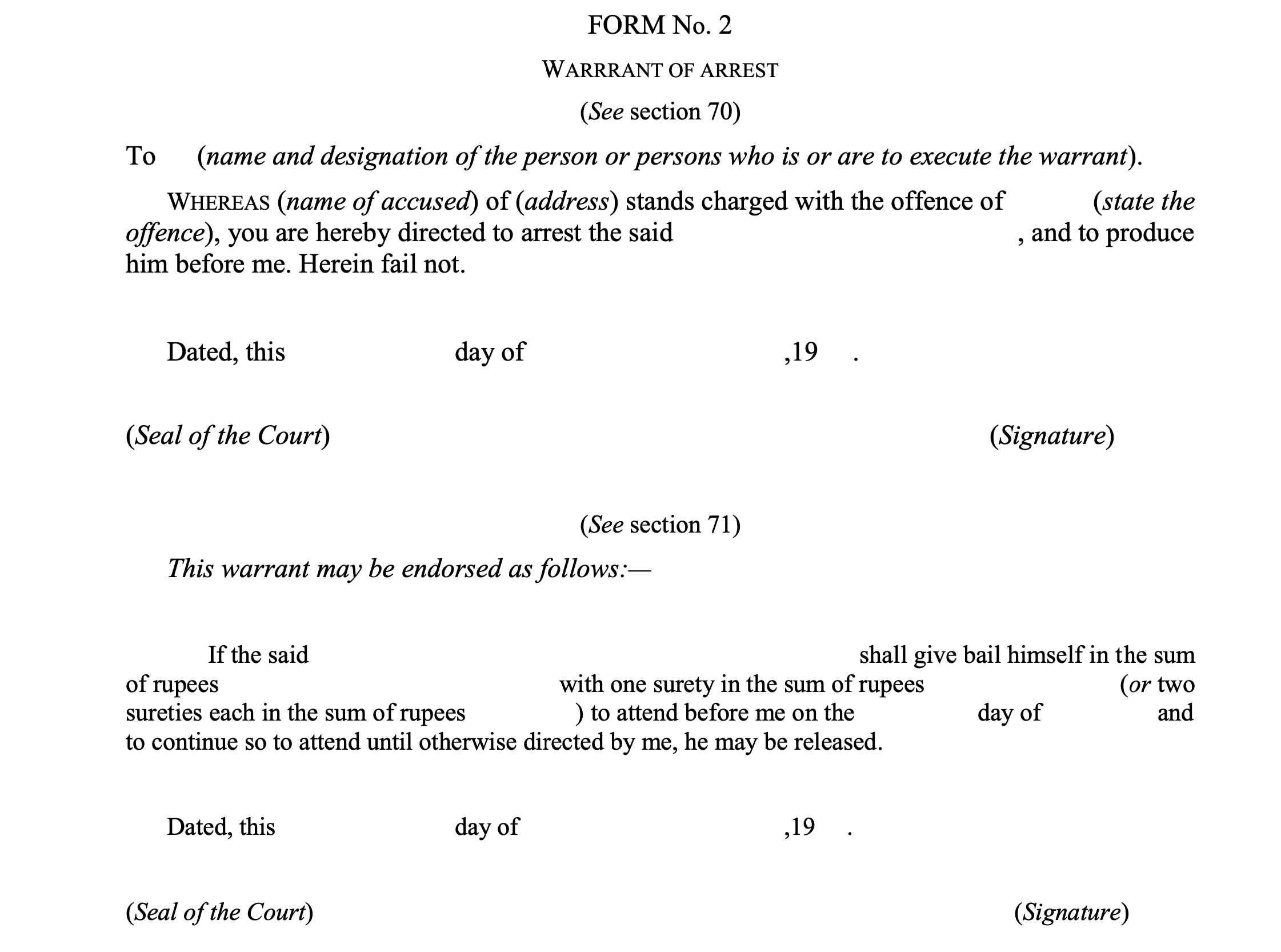
Under Criminal Law, the appearance of any person, party, witness or production of things or documents in the court can be made in the following two manners:
- By issuing summon
- By issuing a warrant
Let us learn more about these important terms and the difference between them.
What Is Summon?
Summon is a legal notice issued to a party or witness to appear before the court or to produce any document or thing before the court.
Whenever an aggrieved party institutes a case against the accused, the court issues or serves a summon to notify the person about the obligation of the person to appear before the court.
A summon can be issued to any person, party, or witness that the court finds relevant to the case. Summon can be referred to as an authoritarian call.
There is no precise definition for summons in CrPC.
According to section 61 of the Code of Criminal Procedure, a summon must be in written form and signed by the presiding officer of the concerned court or by such other officer authorised by the High Court. A duplicate of summon shall also be prepared. (Why a duplicate summon shall be prepared? The purpose of making a duplicate of summon is that one copy of summon is given to the party to whom it is issued for his reference. The use of the other copy is to get it signed by the person to whom it was issued and return it to the police officer (the officer who bought the summon). Basically, it acts as evidence that the summon was duly served to the person.)
The purpose of issuing summons are:
- To compel the appearance of the accused/witness.
- Production of things and documents.
Summon are issued according to Form No. 1 of the 2nd Schedule of the Code of Criminal Procedure:

You can learn a lot more about summon in these law notes:
- What Is Summons Under the Criminal Procedure Code
- Summons and Its Methods of Service Under Civil Procedure Code
What Is Warrant?
A warrant is a legal document that the Judge or Magistrate issues, which empowers a police officer to arrest any person, search or seize any premises, or take any other action.
According to section 70 of the Code of Criminal Procedure, it is a written legal document that is duly signed by the presiding officer and contains the seal of the court. It authorises a police officer to make any arrest.
The purpose of issuing the warrant are:
1. To bring the accused before the court for his trial.
2. Production of things and documents.
Warrants are issued according to Form No. 2 of the 2nd Schedule of the Code of Criminal Procedure:

You can learn more about warrants here: What Is Warrant Under the Criminal Procedure Code
Summon vs Warrant
These are the five major differences between summon and warrant:
1. Object:
- Summon: It is a legal notice that notifies the person about the legal obligation (responsibility) to appear before the court.
- Warrant: It is a legal document whose object is to bring the accused (who has ignored the summons and has not appeared) to the court.
2. Issued to:
- Summon: It is issued to a person/parties/witnesses.
- Warrant: It is issued to the police officer.
3. Motto:
- Summon: It directs the person to appear before the court or to produce any document or thing.
- Warrant: It authorises a police officer to arrest the accused and produce him before the court.
4. Copy:
- Summon: It has a duplicate copy, as per section 61 of the Code of Criminal Procedure.
- Warrant: It does not have a duplicate copy, as per section 70 of the Code of Criminal Procedure.
5. Nature:
- Summon: It is a liberal invitation.
- Warrant: It is an order (to forcefully compel).
Conclusion
In conclusion, though both summon and warrant are legal documents that compel the appearance of the person, summon is a milder form, whereas a warrant is a harsh form of compelling attendance.
Also, both summon and warrant must be issued in:
- Written form
- Signed by the presiding officer
- Must bear the seal of the court
- What Is Anticipatory Breach of Contract Under Contract Act? - 13th July 2024
- Who May File Written Statement (With Its Time Limit and Rules) - 31st May 2024
- Who Is a Legal Representative? - 30th May 2024







